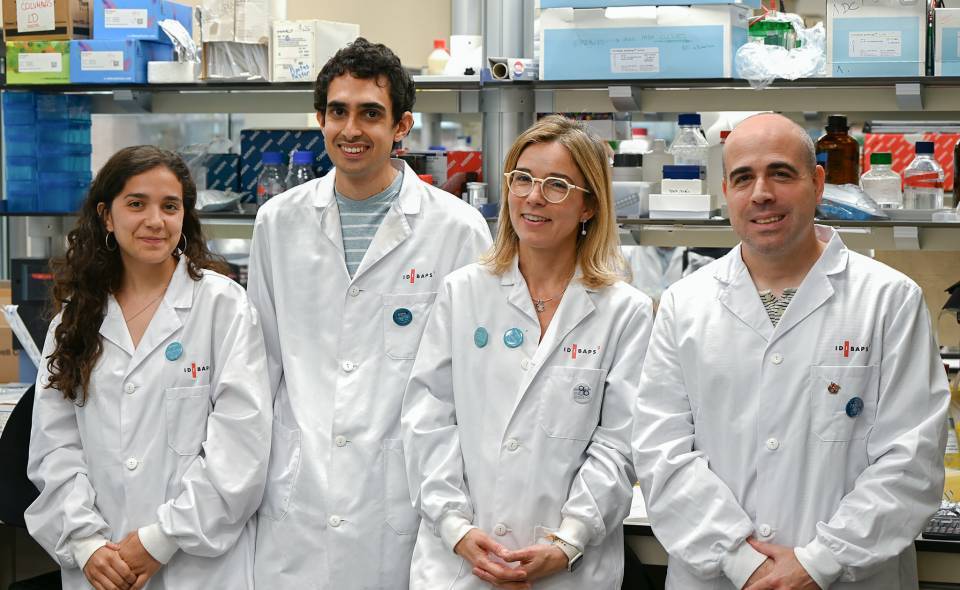What is Lymphoma?
Lymphoma is a haematological cancer (cancer of the blood) that occurs when white blood cells, which defend us against infections, start to experience uncontrolled growth and accumulate in the lymph nodes. Lymphoma is not just a single pathology; it is a complex group of diseases with different characteristics, multiple presentations and diverse clinical patterns, and therefore each requires a specific treatment.
Lymphoma explained in first person
Lymphomas treatment is generally based around chemotherapy and, to a lesser degree, radiotherapy. It is also important to highlight that surgery does not play any role whatsoever in the treatment of lymphomas.
My first piece of advice would be to trust the doctors and you must accept the treatment. Try not to worry about the disease or your state of health. And you should try and force yourself to talk about your illness openly, with the doctors, with your friends, and ask about everything that concerns you.
Lymphoma is a type of cancer that affects the immune system. It develops when the white blood cells or lymphocytes, the blood cells produced by bone marrow and which defend the body from infections, lose control and divide abnormally or do not die when they should.
White blood cells usually circulate around the entire body via the lymph system, which forms part of the immune system, and they can be found in the blood, the spleen, tonsils, lymph nodes, adenoids (masses of lymphatic tissue located precisely where the nose joins the mouth) and lymph itself.
Healthy lymphocytes tend to accumulate in the lymph nodes (primarily in underarm, groin and neck areas) as they find this to be the best place to fight off infections. In people with lymphoma, the diseased lymphocytes form excessive accumulations in the lymph nodes, although they can also accumulate in other parts of the lymph system, such as the spleen, or even in other areas outside the system (lungs, liver, etc.).
The lymph system is a network of tissues and organs that comprises:
- Lymph. Liquid containing white blood cells that defends the body against germs.
- Lymph vessels. These transport lymph around the entire body; they differ from blood vessels.
- Lymph nodes. These are glands which can be found in all of the lymph vessels.
Together with the spleen, lymph nodes are responsible for fighting against infections.
The cells that form lymph are produced by bone marrow and the thymus. They are both part of the overall lymph system.
There are several types of lymphoma, but the most common types are classified as:
- Aggressive or high-grade lymphomas (such as diffuse large cell lymphoma, Hodgkin’s lymphoma, Burkitt’s lymphoma, peripheral T-cell lymphoma):
- These usually present symptoms.
- They are potentially curable but if untreated they are fatal within months.
- They are treated in all cases, so long as the patient’s condition allows treatment.
- Indolent or low-grade lymphomas (e.g., follicular lymphoma, marginal zone lymphoma, lymphocytic lymphoma).
- They are usually asymptomatic at the time of diagnosis.
- Often diagnosed by chance, for example, during a medical examination, whether routine or as part of a study into another disease.
- They are generally incurable, but patients may continue untreated and lead normal lives for many years to come.
- They are only treated when symptoms present. This does not mean there is no treatment available, but rather there is often no need to start treatment at the time of diagnosis.
In Spain, approximately 10 new cases of lymphoma per 100,000 inhabitants are diagnosed every year; this level of incidence is practically identical to the European average (9.8 cases per 100,000 inhabitants per year). The condition is slightly more common in men (60% of all cases diagnosed in Spain) than women (40%).
However, there is also a special subtype of lymphoma with a lower incidence (2.4 new cases per 100,000 inhabitants per year) called Hodgkin’s lymphoma.
In either case, they are uncommon diseases compared to the cancers that most typically affect our society, such as breast cancer in women (with 85 new cases per 100,000 inhabitants annually) and prostate cancer in men (with 97 new cases per 100,000 inhabitants each year).
Substantiated information by:


Published: 20 February 2018
Updated: 20 February 2018
Subscribe
Receive the latest updates related to this content.
(*) Mandatory fields
Thank you for subscribing!
If this is the first time you subscribe you will receive a confirmation email, check your inbox
Lymphoma related news




